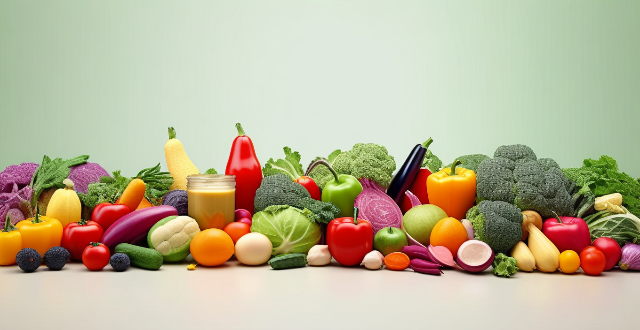Transitioning to a vegetarian or vegan lifestyle requires careful consideration of nutrient sources to ensure a balanced diet. Key nutrients such as protein, iron, vitamin B12, omega-3 fatty acids, calcium, and vitamin D must be obtained from alternative sources. Incorporating a variety of colorful fruits and vegetables, rotating protein sources, experimenting with different grains, and planning balanced meals are crucial for nutritional diversity. Regular snacking and staying hydrated help maintain energy levels. Supplementation may be necessary, especially for vitamins B12 and D, and possibly iron and calcium depending on dietary intake. Monitoring nutrient intake through tracking and regular check-ups with a healthcare provider is essential for maintaining a healthy vegetarian or vegan lifestyle. By focusing on nutrient-dense plant foods and being mindful of potential gaps, one can support overall well-being on a vegetarian or vegan diet.

Balancing Your Diet on a Vegetarian or Vegan Lifestyle
Transitioning to a vegetarian or vegan lifestyle can bring numerous health benefits, but it's crucial to ensure your diet remains balanced to meet all your nutritional needs. Here's how you can achieve a well-rounded vegetarian or vegan diet:
Understanding Nutrient Sources
Protein
- Legumes and Pulses: Chickpeas, lentils, beans, and peas are excellent sources of protein.
- Whole Grains: Quinoa, buckwheat, and brown rice contain good amounts of protein.
- Nuts and Seeds: Almonds, cashews, chia seeds, and hemp seeds are high in protein.
Iron
- Dark Leafy Greens: Spinach and kale are rich in iron.
- Fortified Foods: Cereals and plant milks often have added iron.
- Pulses and Legumes: These also provide a good source of non-heme iron.
Vitamin B12
- Supplements and Fortified Foods: As B12 is primarily found in animal products, consider supplements or fortified foods like plant milks.
Omega-3 Fatty Acids
- Flaxseeds and Chia Seeds: These are rich in alpha-linolenic acid (ALA), a plant-based omega-3.
- Algal Oil: A supplement derived from microalgae is a source of EPA and DHA omega-3s.
Calcium
- Dairy Alternatives: Calcium-fortified plant milks and yogurts are good options.
- Greens: Kale, broccoli, and bok choy contain calcium.
Vitamin D
- Sunlight: Our bodies make vitamin D when exposed to sunlight.
- Fortified Foods: Some plant milks, juices, and cereals are fortified with vitamin D.
Incorporating Variety
- Colorful Plates: Include a variety of fruits and vegetables to get different vitamins and minerals.
- Protein Rotation: Mix up your protein sources to avoid reliance on a single type.
- Experiment with Grains: Try different grains such as barley, farro, or millet for nutrient diversity.
Mindful Meal Planning
- Balanced Meals: Aim for meals that include a protein, whole grain, vegetable, and healthy fat.
- Regular Snacking: Healthy snacks like fruits, nuts, or hummus with veggies keep energy levels stable.
- Hydration: Drink plenty of fluids, especially water, throughout the day.
Consider Supplementation
- Vitamin B12: As mentioned, this is essential for vegetarians and vegans due to its absence in plant foods.
- Vitamin D: Especially for those with limited sun exposure or living in northern climates.
- Iron and Calcium: If your diet is low in these, supplementation might be necessary.
- Omega-3: Particularly if you don't consume flaxseeds, chia seeds, or algal oil regularly.
Monitoring Nutrient Intake
- Tracking: Use apps or journals to monitor your nutrient intake.
- Regular Check-ups: Visit a healthcare provider to check blood levels of key nutrients.
- Education: Learn about vegetarian and vegan nutrition to make informed decisions.
By focusing on a wide variety of nutrient-dense plant foods and being mindful of potential nutrient gaps, you can maintain a healthy vegetarian or vegan diet that supports your overall well-being.